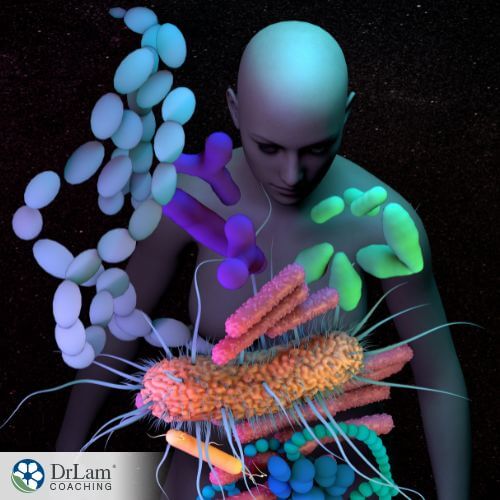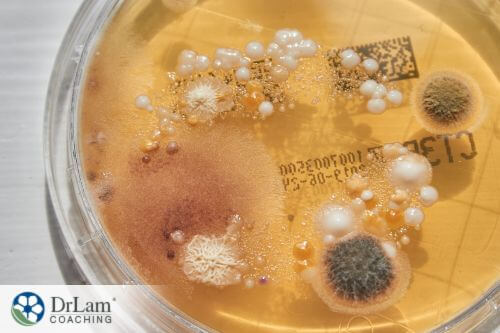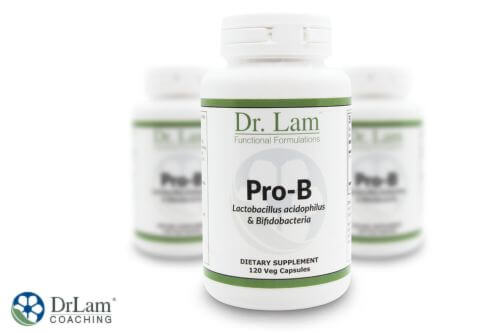 Fungal microorganisms in an environment comprise the mycobiome, which is a crucial component of the human microbiome. Both health and disease can be impacted by your mycobiome. As such, maintaining a balance of beneficial and harmful fungi can help to determine if you remain healthy or experience infection or disease. Though research is limited in the field, early studies have revealed useful insight. This article discusses how the fungal microbiota impacts health and disease.
Fungal microorganisms in an environment comprise the mycobiome, which is a crucial component of the human microbiome. Both health and disease can be impacted by your mycobiome. As such, maintaining a balance of beneficial and harmful fungi can help to determine if you remain healthy or experience infection or disease. Though research is limited in the field, early studies have revealed useful insight. This article discusses how the fungal microbiota impacts health and disease.
The mycobiome can be described as the fungal component of the human microbial ecosystem, of which it’s only a small part. The human mycobiome can be found in the oral cavity, gastrointestinal tract, respiratory tract, urogenital tract, and skin. Soon after birth, fungi colonization starts, and this initial mycobiome is shaped by different factors of the newborn. These include gestational age, birth weight, and delivery and feeding method. Additionally, over time, the mycobiome’s composition is further impacted by other critical factors like age, body weight, lifestyle, hormonal changes, diet, and sex.
According to an article in The Journal of Eukaryotic Microbiology, “Mycobiome” is a term originally coined for a molecular fingerprint study of fungal communities on salt-marsh plants (Gillevet et al. 2009). The term 'mycobiome' is a combination of the words 'mycology' and 'microbiome'. In that vein, the former term refers to the study of fungi, while the latter refers to the microorganisms that live together in an environment, such as the gut or skin.
The mycobiome plays a critical role in maintaining homeostasis of the microbial ecosystem. The diverse mycobiome has the potential to impact host health and is associated with various diseases. For instance, an article in Cancers states that the “Mycobiome” has a significant role in the development of several cancers. For instance, there's a link between the fungi specie Malassezia and pancreatic duct adenocarcinoma.
Furthermore, according to a 2020 article in the International Journal of Microbiology, the mycobiome affects a broad disease spectrum. These are related to the respiratory tract, hematology, skin, oral cavity, gastrointestinal tract, neuropsychiatric, and genitourinary.
The significance of the mycobiome appears relevant in the assessment of the biota of particular environments. Three areas where this stands out, according to a study in the publication Genome Med, are:
The term “mycobiome” refers specifically to the fungal component of the microbiome and it forms 0.1% of the total gut microbiome. Compared to the human bacteriome, the human mycobiome is less diverse and is of a lower abundance. Also, the bacteria in the microbiome can help to keep the mycobiome in check by preventing the growth of opportunistic microbes, like Candida albicans. Still, mycobiome research is in its infancy.
The term “microbiome” refers to microorganisms and their genomes that exist in and on the human body. This includes millions of bacteria, fungi, viruses, parasites, and protozoa. Each individual has roughly 600,000 microbial genes. As such, your microbiome is uniquely individual in the same way a fingerprint is.
A study in Microbiome and Metabolome in Diagnosis, Therapy, and Other Strategic Applications suggests that the mycobiome and microbiome can be viewed as being in a state of balance. Specifically, the bacteria in the microbiome keep the mycobiome in check in the production of extracellular substances that prevent the growth of yeast-to-hyphae transition of pathobionts, like Candida albicans.
 Fungi could be detrimental or beneficial. According to a Review published in Genome Medicine, the human mycobiome contributes to disease via the interaction between different biomes, and also through the interaction between the mycobiome and the host.
Fungi could be detrimental or beneficial. According to a Review published in Genome Medicine, the human mycobiome contributes to disease via the interaction between different biomes, and also through the interaction between the mycobiome and the host.
On one hand, in people with infectious diseases, fungi can worsen the infection. For instance, an abundance of Malassezia has been linked with the onset and progression of colorectal carcinoma and pancreatic adenocarcinoma.
On the other hand, beneficial fungi have been found to serve as preventive and therapeutic agents. For instance, the fungal genus Schizophyllum is suggested to have anti-cancer potential, while the use of Saccharomyces boulardii is applied to remedying diarrhoeal diseases.
Furthermore, an article in the journal Microbiology Spectrum highlights the effect of the mycobiome on health and disease states in specific areas, including:
Healthy host-microbiota interaction is significant to different body functions and the maintenance of a “normal” state. As such, any disruption of this balance can cause dysbiosis that could contribute to disease states.
For instance, as highlighted in the publication Infection and Immunity, a disturbance of the gut mycobiome by C. albicans impacts allergic pulmonary disease induced by A. fumigatus in the lung mycobiome. In essence, the mycobiome can help to maintain a balance between microbiota communities that, in turn, hinder disease progression.
Continued evidence indicates that there exist complex and multidirectional interactions between the host gastrointestinal tract and fungi. This interaction influences health and disease states. In healthy persons, the gastrointestinal mycobiome is believed to include 66 fungal genera, with Candida as the dominant species. It appears that differences in mycobiome composition can be an indication of particular gastrointestinal diseases.
Research evidence suggests a link between the oral bacteriome and mycobiome, with early studies showing bacterial-fungal pairs in HIV-positive individuals. Furthermore, a nonpathogenic member of the core oral mycobiome (COM), Pichia, shows a preventative effect against pathogenic fungi, such as Candida, Cryptococcus, Aspergillus, and Fusarium.
The intestinal mycobiome includes all the fungal species that participate in the body's microbiome. It varies from 0.03 to 2% of gut microbial species, with the number of fungal species significantly smaller than that of the bacteria species. Also, its makeup and function appears to be less advanced than that of bacteria.
According to the Microbiome Foundation article “The Intestinal Mycobiome, a Health Partner Still Little Known,” present in all terrestrial and aquatic ecosystems, fungi represent much larger biomass than bacteria because of their size, which is 100 times larger than the latter. Furthermore, the mycobiome has:
 According to the Microbiome Foundation, different diets can impact the composition of the mycobiome; for instance, fungal species such as those of the genus Candida would be favored by high consumption of carbohydrates, while the consumption of fermented products, like beer or sourdough bread, that are rich in yeasts, would favor species of the genus Saccharomyces. Researchers have gone further and explored the potential connection between metabolism and the gut mycobiome.
According to the Microbiome Foundation, different diets can impact the composition of the mycobiome; for instance, fungal species such as those of the genus Candida would be favored by high consumption of carbohydrates, while the consumption of fermented products, like beer or sourdough bread, that are rich in yeasts, would favor species of the genus Saccharomyces. Researchers have gone further and explored the potential connection between metabolism and the gut mycobiome.
Gut fungi may impact critical aspects of health, including metabolism and the accumulation of body fat. Based on recent research findings, the mycobiome influences our metabolic health. Researchers have explored the potential links between the gut mycobiome, the environment, and metabolism in subjects exposed to a standardized or processed diet.
In an animal (mice model) study published in Communications Biology, findings suggest that changes in the mycobiome could potentially contribute to increased fat mass, hunger hormones, and insulin resistance, which are critical risk factors for obesity. Specifically, the study revealed that:
The conclusion that can be made from the findings is that the makeup of the mycobiome is complex and can be impacted by both dietary and environmental changes. Also, disruptions to fungal populations can cause metabolic changes. Furthermore, it appears that the composition of the gut fungal communities could have long-term implications for conditions like diabetes and obesity.
Irritable bowel syndrome (IBS) is a functional gastrointestinal disorder that affects the lower GI tract and is characterized by altered bowel habits. Persons with IBS usually experience chronic diarrhea, constipation, or both. An imbalance in the fungal communities has been linked to IBS.
According to a 2019 article, published in Frontiers in Microbiology, based on research findings, gut mycobiome is involved in the existing mechanisms of irritable bowel syndrome, such as low-grade inflammation, intestinal dysbiosis, pain or discomfort in visceral organs, and brain-gut interactions. As such, it appears that intestinal fungi impact the progression and management of IBS.
Adrenal fatigue syndrome (AFS) is characterized by chronic stress, and this stress puts the NeuroEndoMetabolic (NEM) stress response into overdrive. When this happens, levels of the "stress hormone" cortisol rise and eventually fall. Cortisol helps lower inflammation, so chronically low levels can lead to chronic inflammation.
The Inflammation circuit, which is a part of the NEM Stress Response, consists of the immune system, the gastrointestinal tract, and the microbiome. Most inflammatory diseases begin in your gastrointestinal (GI tract) or gut, where inflammation loosens the tight junctions of the gut lining. Due to a permeable gut lining, food and toxins can travel to other parts of the body and into the bloodstream. This leads to inflammation and disease throughout the body.
An imbalance in your gut’s microbiome can be a major cause of inflammation. A dysregulated Inflammation circuit may cause IBS and a leaky gut.
You can support a healthy mycobiome by eating specific foods to keep your gut flora balanced. Some particular vegetables could support your mycobiome. These include:

When it comes to supporting your mycobiome, and by extension, your gut health and digestion, Dr. Lam has several formulations that may help:
Adrezyme by Dr. Lam is a proprietary formulation that provides a variety of enzymes. These enzymes are active in a broad pH range and support food digestion. Specifically, it helps with the breakdown of fat, carbohydrates, proteins, dairy, grains, and indigestible fibers.
Usage: It’s suggested that you take 1 capsule with each meal.
Adrenal Gut Restore by Dr. Lam is a proprietary formulation of compounds that supports a healthy gut.
Usage: It’s suggested that you take 1 capsule daily.
Allerdim is Dr. Lam’s new and improved formulation. It is a potent combination of Quercetin and Bromelain and is helpful in combatting allergy symptoms. Quercetin is a bioflavonoid that’s useful in preventing histamine from getting into your bloodstream. Furthermore, it also helps in preventing the production of a group of fatty acids that can trigger asthma symptoms. Bromelain’s powerful properties support the body’s absorption and utilization of Quercetin.
Usage: It’s suggested that you take 1 capsule 20 minutes before meals, 2-3 times daily as a dietary supplement. If you have sensitive a stomach, it might be best to take capsules with meals if you prefer.
Diazyme is a Dr. Lam-formulated supplement that provides a comprehensive blend of vegetarian enzymes active in a broad pH range. It helps you to digest your food. Protease breaks down protein, Amylase breaks down starch, Lipase breaks down fat, Cellulase breaks down fiber, and Lactase breaks down lactose (milk sugar). Papain and Bromelain are primarily protein-digesting enzymes.
Usage: It’s suggested that when using Diazyme as a dietary supplement, you take 1 vegetarian capsule 1-2 times daily with food, or as directed by your health care practitioner.
Glutelyze by Dr. Lam is a digestive enzyme formula that supports the digestive process, by focusing on digesting gluten. It breaks apart difficult-to-digest proline-containing peptides, typically present in dairy products and cereal grains. Also, Glutelyze contains amylase and glucoamylase enzymes that help to break down carbohydrates.
Usage: It’s suggested that you take 1 capsule at the beginning of any meal that may contain gluten. However, if you have celiac disease, Glutelyze should only be used under your physician's supervision.
Stomazyme by Dr. Lam is a proprietary blend that contains a combination of enzymes, plus betaine hydrochloride and ox bile extract. This formulation helps to support healthy digestion. Additionally, it has the potential to help with the production of stomach acid, boost bile production, and help the breakdown of carbs, fat, and proteins.
Usage: It’s suggested that you take 1 tablet with a meal.
Dr. Lam’s Adrebiotics provide a wide range of beneficial bacteria found in your body that supports a healthy digestive system and a healthy immune system.
Usage: It’s suggested that you take 1 capsule 1-2 times daily between meals or on an empty stomach.
 Pro-B by Dr. Lam is a potent probiotic formula that contains Lactobacillus acidophilus. It helps with digestion and supports healthy skin and the health of your immune system. Pro-B helps to maintain the "good bacteria" in your gut that support proper digestion and absorption of nutrients from food. This probiotic formula can help you maintain healthy intestinal flora and help support a balanced mycobiome.
Pro-B by Dr. Lam is a potent probiotic formula that contains Lactobacillus acidophilus. It helps with digestion and supports healthy skin and the health of your immune system. Pro-B helps to maintain the "good bacteria" in your gut that support proper digestion and absorption of nutrients from food. This probiotic formula can help you maintain healthy intestinal flora and help support a balanced mycobiome.
Usage: It’s suggested that if you use Pro-B as a dietary supplement, take 1 capsule 1 to 2 times daily between meals or on an empty stomach.
Dr. Lam’s Pro-Y contains Saccharomyces boulardii, which is a strain of yeast with probiotics benefits. This product may support a healthy gut flora balance and the health and balance of the intestinal tract against environmental and internal stressors.
Usage: It’s suggested that you take 1-2 capsules 2 to 3 times daily between meals as needed.
It’s important to consult with your healthcare provider before you start taking any supplements. If you are pregnant or nursing, taking medications, or have a medical condition, talk to your doctor first.
The human mycobiome plays a critical role in human health and is affected by environmental factors. Fungal communities are an important part of the human microbiome and should be supported for the benefit of your general health. Studies show the fungal communities in your gut may impact your weight and metabolism, so it is important to support the diversity of these communities with certain vegetables in your diet and by avoiding processed foods.
If you are experiencing symptoms of a gut issue and would like to learn about natural ways to remedy them, the team at Dr. Lam Coaching can help. We offer a free** no-obligation phone consultation at +1 (626) 571-1234 where we will privately discuss your health concerns and various options. You can also send us a question through our Ask The Doctor system by clicking here.
Belvoncikova, P., Splichalova, P., Videnska, P., & Gardlik, R. (2022). The Human Mycobiome: Colonization, Composition and the Role in Health and Disease. Journal of Fungi, 8(10), 1046. MDPI AG. Retrieved from http://dx.doi.org/10.3390/jof8101046
El-Jurdi, N., & Ghannoum, M. A. (2017). The Mycobiome: Impact on Health and Disease States. Microbiology spectrum, 5(3), 10.1128/microbiolspec.FUNK-0045-2016. https://doi.org/10.1128/microbiolspec.FUNK-0045-2016
Gu, Y., Zhou, G., Qin, X., Huang, S., Wang, B., & Cao, H. (2018). The Potential Role of Gut Mycobiome in Irritable Bowel Syndrome. Frontiers in Microbiology, 10. https://doi.org/10.3389/fmicb.2019.01894
Hooks, K. B. (2020). Contrasting Strategies: Human Eukaryotic Versus Bacterial Microbiome Research. The Journal of Eukaryotic Microbiology, 67(2), 279-295. https://doi.org/10.1111/jeu.12766
Mims, T. S., Abdallah, Q. A., Stewart, J. D., Watts, S. P., White, C. T., Rousselle, T. V., Gosain, A., Bajwa, A., Han, J. C., Willis, K. A., & Pierre, J. F. (2021). The gut mycobiome of healthy mice is shaped by the environment and correlates with metabolic outcomes in response to diet. Communications Biology, 4(1), 281. https://doi.org/10.1038/s42003-021-01820-z
Noverr, M. C., Falkowski, N. R., McDonald, R. A., McKenzie, A. N., & Huffnagle, G. B. (2005). Development of allergic airway disease in mice following antibiotic therapy and fungal microbiota increase: role of host genetics, antigen, and interleukin-13. Infection and immunity, 73(1), 30–38. https://doi.org/10.1128/IAI.73.1.30-38.2005
Ogunrinola, G. A., Oyewale, J. O., Oshamika, O. O., & Olasehinde, G. I. (2020). The Human Microbiome and Its Impacts on Health. International Journal of Microbiology, 2020. https://doi.org/10.1155/2020/8045646
Retnakumar, R., Nath, A. N., Nair, G. B., & Chattopadhyay, S. (2022). Gastrointestinal microbiome in the context of Helicobacter pylori infection in stomach and gastroduodenal diseases. Progress in Molecular Biology and Translational Science, 192(1), 53-95. https://doi.org/10.1016/bs.pmbts.2022.07.001
Satapathy, P., Khan, K., Devi, A. T., Patil, A. G., Govindaraju, A. M., Gopal, S., Prasad, M. N. N., More, V. S., Kakarla, R. R., Raghu, A. V., Hudeda, S., More, S. S., & Zameer, F. (2019). Synthetic gutomics: Deciphering the microbial code for futuristic diagnosis and personalized medicine. Methods in Microbiology, 46, 197-225. https://doi.org/10.1016/bs.mim.2019.02.001
The mycobiome can affect your metabolic health, gut health, and inflammation levels. Studies show low diversity of the mycobiome and processed foods may increase markers for obesity, dysregulate hunger hormones, and affect insulin resistance.